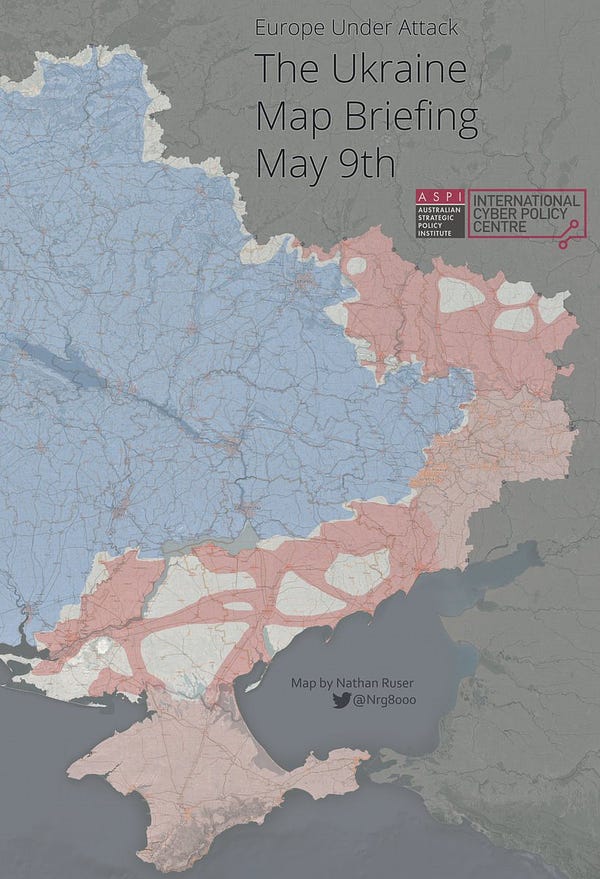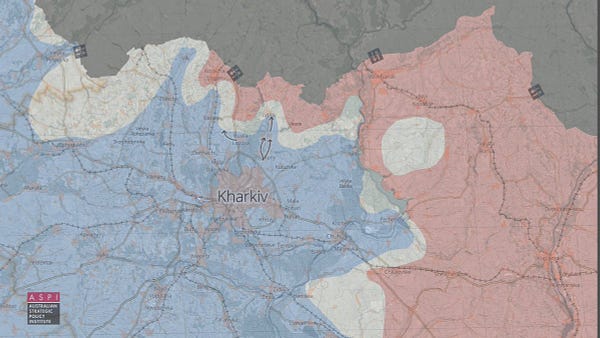Pentagon’s China warning prompts calls to vet U.S. startup funding | Clearview AI to stop selling facial recognition tool to private firms | Italy launches inquiry into Kremlin disinformation
Follow us on Twitter. The Daily Cyber Digest focuses on the topics we work on, including cyber, critical technologies & strategic issues like foreign interference.
Congress may soon require government agencies to vet tech startups seeking federal funding, after a Defense Department study found China is exploiting a popular program that funds innovation among small American companies. The Wall Street Journal
A facial recognition company whose massive database has been used to identify Russian soldiers killed in Ukraine has agreed to stop its sales to private companies in the United States as part of a landmark settlement reining in a technology criticized as threatening Americans’ privacy rights. The Washington Post
An Italian parliamentary committee has begun an investigation into the spread of disinformation, reportedly amid suspicions that some Russian commentators hosted on television networks could be on Vladimir Putin’s payroll. The Guardian
ASPI ICPC
Fragmented internet is ‘detrimental to prosperity and innovation’
Financial Times
Brandon How
Australia, along with the European Commission and 58 other countries have signed a United States-led collective commitment to support an open internet that promotes democracy, the rule or law, and human rights. Head of Cyber Capacity Building, International Cyber Policy Centre at the Australian Security Policy Institute Bart Hogeveen said that the declaration acknowledges that “fragmentation of the global internet is detrimental to our prosperity, innovation power, and people-to-people interaction”. It also sends a political-diplomatic signal to those who have yet to subscribe to the declaration.




Ukraine - Russia
Russia pummelled by pro-Ukrainian hackers following invasion
Financial Times
Mehul Srivastava
Now, Russia itself is being hunted in the cyber arena by pro-Ukraine hackers, opportunistic criminal groups and, as some security researchers suspect, government-backed entities from western countries.
Ukraine’s online volunteers go after Russian targets
Foreign Policy
Justin Ling
Ukraine’s massive cyberarmy, which includes both workers from the country’s burgeoning technology sector and volunteers from around the world, has turned the tables on Russia in a way that experts never expected.
Deepfakes and espionage, but no cyber apocalypse from Ukraine invasion
Financial Review
Max Mason
Vladimir Putin’s underestimation of Ukraine in the physical and online world, coupled with the global response to his invasion, has forced Russia to pour its top-tier cyber efforts into reconnaissance and espionage rather than all-out digital warfare, experts say.
Australia
Opportunity over fear in quantum technology: Biercuk
Innovation Aus
Michael Biercuk
Australia and its allies are now faced with a once-in-a-generation opportunity to build a greenfield quantum technology industry, predicted by analysts to be worth more than $1 trillion over the next decades. In policy discussions and frameworks we need to collaboratively prioritise the upside of this commercial opportunity for Australia, rather than the perceived downsides of proliferation risk.
Cyber insurance’s ‘dirty little secret’: It’s useless
Financial Review
John Davidson
Cyber insurance against ransomware and other online attacks has been rendered almost useless because too many companies make “dumb” claims, and businesses should move to making claims only as a very last resort, a peak body representing Australia’s top information security officers has warned.

China
China’s chip import volume falls in first four months amid tech self-sufficiency push, Covid-related manufacturing disruption
South China Morning Post
Jiaxing Li
China’s import volume of integrated circuits (ICs) dropped in the first four months of 2022, according to official customs data, at a time when the country is attempting to cut its reliance on foreign technologies while imposing strict anti-pandemic measures that have crippled the manufacturing sector.
How China is rewriting the norms of human rights
Lawfare
Tanner Larkin
Several African states’ adoption of PRC-inspired cyber statutes is a form of legal internalization. Norms are general standards of behavior rather than specific prescriptions for action, but elements of norms often inform or are explicitly codified in domestic law. China’s norms have informed its own cyber policies, which have served as a model for other states. For instance, several African states—including Tanzania, Uganda and Zimbabwe—have enacted repressive cyber statutes and regulations modeled on China’s approach to state control of the internet and possibly instigated by China’s influence activities. As William Gravett points out, the China model of “internet sovereignty” reflects the PRC’s authoritarian concept of human rights as entailing a strong state furthering what it deems the collective good at the expense of individual freedoms. The fact that several African states are moving toward the PRC’s repressive internet policies suggests that China’s human rights normfare is already beginning to bear fruit.
USA
Pentagon’s China warning prompts calls to vet U.S. funding of startups
The Wall Street Journal
Kate O’Keeffe
Congress may soon require government agencies to vet tech startups seeking federal funding, after a Defense Department study found China is exploiting a popular program that funds innovation among small American companies. The study, which was viewed by The Wall Street Journal, found China is using state-sponsored methods to target companies that have received Pentagon funding from the Small Business Innovation Research program. The SBIR program for decades has sought to promote innovation through a competitive U.S. government award process.
Classified Hikivision security briefing
IPVM
Conor Healy
US intelligence officials shared classified evidence with key lawmakers on national security threats posed by Hikvision to marshal support for the NDAA ban, and the Secure Equipment Act. IPVM spoke to 3 individuals with knowledge of these briefings.
Clearview AI to stop selling facial recognition tool to private firms
The Washington Post
Drew Harwell
A facial recognition company whose massive database has been used to identify Russian soldiers killed in Ukraine has agreed to stop its sales to private companies in the United States as part of a landmark settlement reining in a technology criticized as threatening Americans’ privacy rights.
US slams Putin for ‘disinformation’
Al Jazeera
Ali Harb
US says Russian President Vladimir Putin delivered ‘a version of revisionist history’ amid ongoing Ukraine invasion.
Ukraine war spurs U.S. to ramp up security probe of software maker Kaspersky
Reuters
Alexandra Alper
The Biden administration ramped up a national security probe into Russia's AO Kaspersky Lab antivirus software earlier this year amid heightened fears of Russian cyberattacks after Moscow invaded Ukraine, three people familiar with the matter told Reuters.
The potential overturn of Roe shows why we need more digital privacy protections
Slate
Elizabeth Joh
The inability to obtain a safe and legal abortion has always put lives at risk. That’s why the recent leak of a Supreme Court opinion that proposes to strip away the constitutionally protected right to abortion has prompted some to say that we are turning back the clock on reproductive rights. That’s not quite right. Why? Because the end of Roe v. Wade should be understood in the context of our vast and underregulated surveillance economy, and the reliance of law enforcement on it. It’s true that even if Roe is overturned, there will still be legal abortions available to those who live in or can travel to states where abortion remains legal. (That is, so long as Congress doesn’t pass a national ban on abortions.) But for many, the digital breadcrumbs we leave will become potential evidence for criminal investigations. The likely end of Roe isn’t just about losing control over our bodies; it emphasizes how much control we’ve lost over our digital selves.
North Asia
South Korea has joined a Nato cyber defence centre. Should China be worried?
South China Morning Post
Jack Lau
Although the centre is separate from the Nato command structure, Chinese military analysts said that the addition of its close neighbour and American ally to the group had Beijing worried, seeing it as expansion of the US-led defence alliance in northeast Asia that could threaten Chinese security interests in the region.
Nobel Laureate says a Marcos win will spur more disinformation
Bloomberg
Philip Heijmans
Nobel Laureate Maria Ressa warned that a win for Ferdinand Marcos Jr. in the Philippine presidential poll will show the continued potency of misinformation campaigns that could have implications in the U.S. and Brazilian elections this year.
Europe
Italy launches inquiry into Kremlin disinformation
The Guardian
Angela Giuffrida
An Italian parliamentary committee has begun an investigation into the spread of disinformation, reportedly amid suspicions that some Russian commentators hosted on television networks could be on Vladimir Putin’s payroll.
UK
UK must protect child influencers from exploitation, MPs say
The Guardian
Dan Milmo
Concerns raised that ‘kidfluencers’ are being used by parents to capitalise on lucrative social media market
The Middle East
NSO Group keeping owners ‘in the dark’, manager says
Financial Times
US consultancy overseeing Israeli spyware company tells EU lawmakers it is being stonewalled by management
Big Tech
Twitter’s top lawyer long weighed safety and free speech. Then Elon Musk called her out
The Washington Post
Elizabeth Dwoskin, Cat Zakrzewski, Will Oremus & Joseph Menn
Vijaya Gadde has been targeted by the right as Elon Musk seeks to take over the company. But insiders say she’s not the ‘chief censor’ critics imagine.


Uber shareholders to vote on lobbying disclosure proposal
TechCrunch
Aisha Malik
Instagram head Adam Mosseri announced today that the platform is going to start testing NFTs with select creators in the United States this week.
Misc
A force for the future
Foreign Affairs
Michael C. Horowitz, Lauren Kahn & Laura Resnick Samotin
Gunpowder. The combustion engine. The airplane. These are just some of the technologies that have forever changed the face of warfare. Now, the world is experiencing another transformation that could redefine military strength: the development of artificial intelligence (AI).

Events
US-China Tech Race: The great decoupling
Financial Times
In the final episode of this season of Tech Tonic, we ask if the growing tensions between the US and China could split the world into two competing technological spheres. It has been dubbed 'the great decoupling'. Some in the US want to see Chinese companies cut off from American investment, while hawkish factions in China have been fighting for a more self-sufficient and nationalistic tech sector. But what would decoupling really look like? And is it even possible?
Jobs
The Sydney Dialogue - Senior Events Coordinator
ASPI ICPC
The Australian Strategic Policy Institute (ASPI) is currently recruiting for an experienced events professional to coordinate the planning and logistics of the second iteration of ASPI’s Sydney Dialogue - the world’s premier summit on emerging, critical and cyber technologies.
ICPC Senior Analyst or Analyst - China
ASPI ICPC
ASPI’s International Cyber Policy Centre (ICPC) has a unique opportunity for exceptional and experienced China-focused senior analysts or analysts to join its centre. This role will focus on original research and analysis centred around the (growing) range of topics which our ICPC China team work on. Our China team produces some of the most impactful and well-read policy-relevant research in the world, with our experts often being called upon by politicians, governments, corporates and civil society actors to provide briefings and advice.






